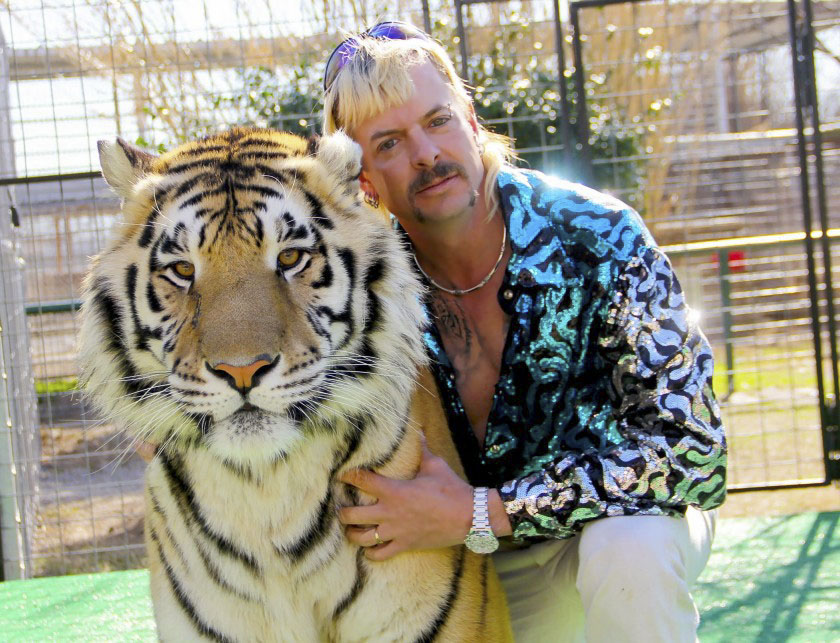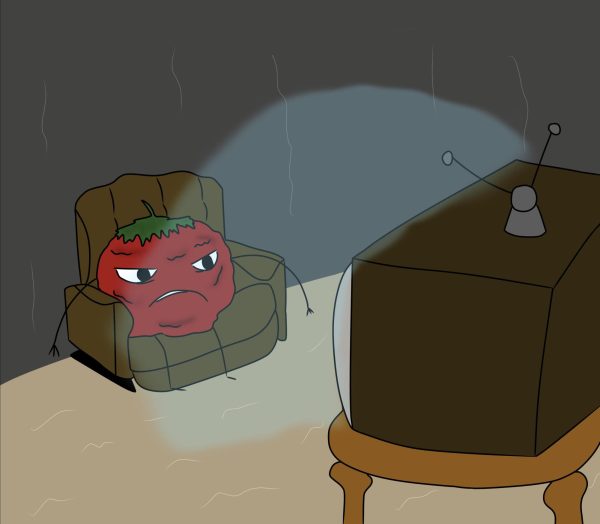‘Tiger King’: Should you? You should
Kolus movie critic Darby O’Neill takes a look at why Netflix’s quarantine hit series is worth your time
by Netflix
Joe Exotic poses with one of his wild cats in “Tiger King.” (Netflix)
June 5, 2020
Now that we’ve all grown accustomed to quarantine life, millions of Americans face the grueling dilemma as old as time itself: ‘what should I watch?’
Many of us have turned to Netflix, rewatching our old favorite series or even watching the abundance of new content such as “Outer Banks,” “Never Have I Ever,” “Hollywood,” or even “Beastars.”
Out of all the originals to come out in the last couple of months, one stands out in particular. On March 20, Netflix released one of its most ambitious series yet: “Tiger King: Murder, Mayhem and Madness.” This eight-episode mini documentary series quickly became an internet sensation and the subject of many, many memes. There’s even rumors of a theatrical release starring Nicolas Cage.If you still haven’t gotten around to watching it, I’m here to tell you why you should.
I would first like to say that absolutely nothing could’ve prepared me for the rollercoaster this series would take me on.
The original goal of the show was to follow the story of a man from Oklahoma by the (stage) name of Joe Exotic. An eccentric, poor, mullet-wearing, song-writing, gun-wielding, gay redneck who owned and operated a private wildlife zoo where he kept hundreds of tigers. The series was intended to document the animals and life at the G.W. Zoo, its employees, as well as Exotic’s rather (for lack of a better word,) exotic background. However, mid-production, the project started to evolve real-time. The story developed into a much bigger, more complex, and darker web of lies, threats, and crime.
“Tiger King” provides a unique take on human life. As Washingtonians, we may sometimes be oblivious to the ‘odd’ subcultures that exist in southern states like Florida and Oklahoma. Many viewers were shocked to see the strange and unfamiliar lifestyle these people live. I think of it sort of like a car-crash in slow motion: you want to look away, but you can’t.
There’s something so compelling about these people’s lives that sucks you in. It’s easy to skip past at first, especially if you’re not used to their way of life. But to the rest of us, it’s addicting.
The series introduces a wide variety of peculiar characters: the mysterious TV producer who looks straight out of an old western, the polygamous, self-proclaimed “Bhagavan” Doc Antle, and not to mention the Cat-Crazy, flower crown-wearing Carole Baskin. At some point in the beginning of watching, I remember thinking to myself, “these characters seem a little too unbelievable,” only to unsatisfyingly remember that they are real people.
I think that ultimately “Tiger King” shows viewers a cautionary tale about how rivalries can easily get out of hand. How corruption, power, and money can draw focus away from what’s truly important. In this case it was the animals, who didn’t gain anything from the craziness.
The show is also an “Ethical Trainwreck,” as The Atlantic correctly refers to it. It never really left viewers with a clear Idea of who the “villain” was supposed to be. Whose side was I on? Who did I feel bad for? Was I even on anyone’s side? I was left with more questions unanswered than answered, definitely looking forward to the inevitable follow-up season. What will happen to Joe? Who knows. Did Carole really kill her husband? Probably. Honestly, I wouldn’t put it past the woman who put her second husband on a leash for their wedding photos.
All in all, Tiger King is a revolutionary and captivating piece of art, one that still confuses me weeks after watching.
I give it 4/5 missing teeth. If you have Netflix and still haven’t seen the series, I highly recommend it. And with self-isolation, it’s probably not likely you have anything better to do anyways.











